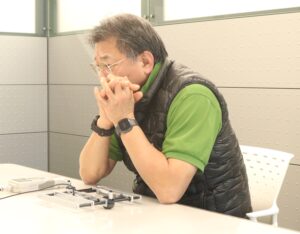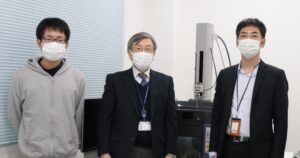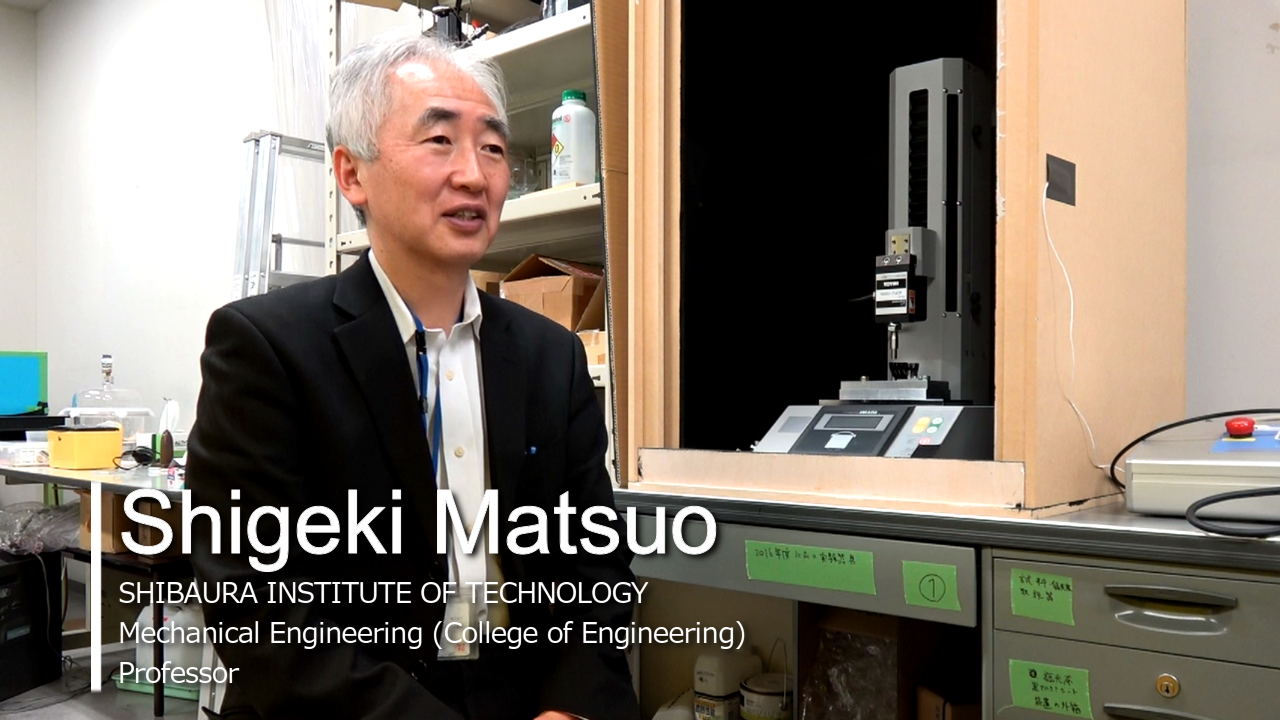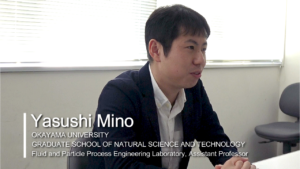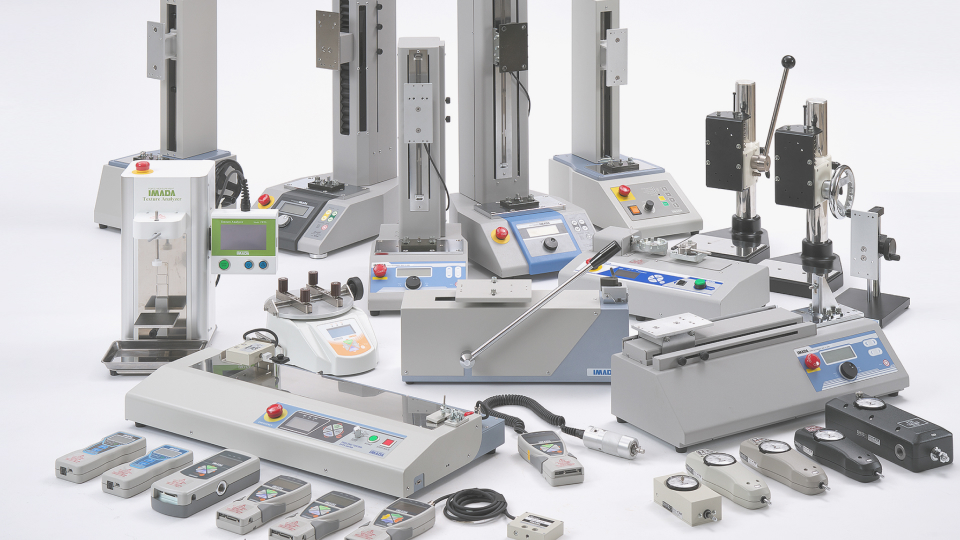This article introduces one of the research studies conducted by Professor Hiroyo Kondo, Department of Nutrition, Faculty of Health and Nutrition, Shubun University, Aichi, Japan.
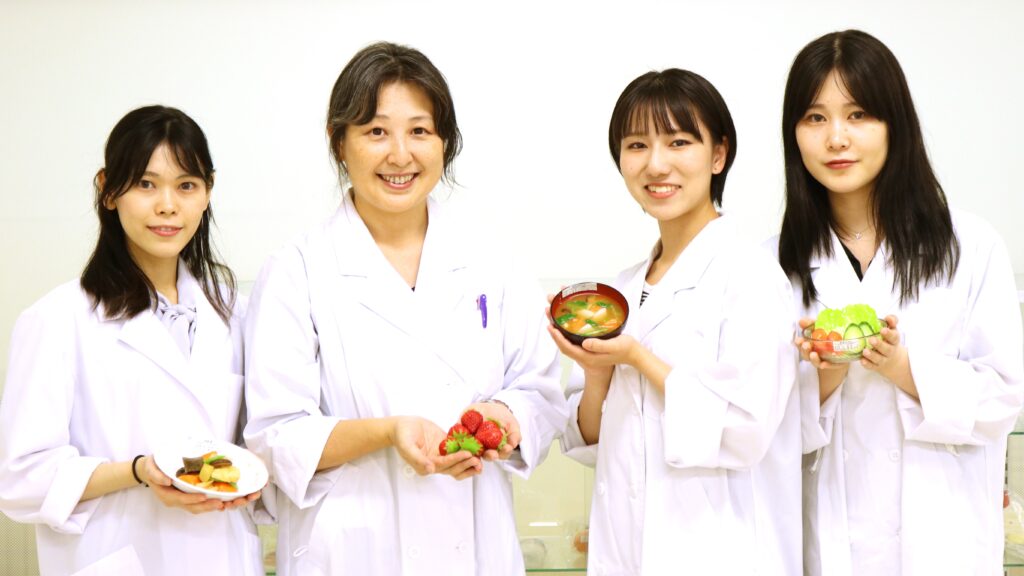
This study investigates the mechanical properties of fluidity- and viscosity-modified foods to prevent aspiration, using a rheometer and various digestive enzymes as monitors.
IMADA believes that the role of force measurement and the accumulated knowledge enable the support of studies and research on social significance, such as Professor Kondo’s research on the effects of digestive enzymes on the mechanical properties of edible thickening agents and thickened foods.
Professor Kondo is the Department Head of Health and Nutrition at Shubun University, a researcher and student mentor since 2023. She received her Ph.D. in Human and Environmental Studies from Kyoto University and has been taught and conducted research at several universities in Japan. (IMADA research monitor applied in 2022 at Nagoya Women’s University)
According to Professor Kondo, the weakening of swallowing function due to muscle weakness, cerebrovascular disorders, and neuromuscular diseases poses a risk of low nutrition and dehydration, as well as choking and aspiration pneumonia, which is increasing with the aging of the population.
Although edible thickening agents have been used to prevent aspiration, there are no established handling or formulas, as the amounts and viscosities of the formulas vary.
In addition, the effects of digestive enzymes on the thickening agents and thickened foods (reduction in hardness and viscosity) are still unclear, and she found that there has been insufficient research on the risks of aspiration through eating and gastroesophageal reflux due to changes in the stomach, and she was considering ways to solve this problem.
Based on the background, IMADA Rheometer FRTS-50N is used to measure the effects of amylase and other digestive enzymes on thickened foods.
In the process of acquiring and analyzing data, we have received favorable feedback from Professor Kondo that she can see differences in hardness, adhesion, cohesion, adhesion, elasticity, and even detailed numerical values compared to the conventional measurement method (LST: line spread test), and thus can perform analysis that removes ambiguities.
In the course of their research, they realized the importance of environmental conditions such as temperature, and they are currently accumulating data on the effects of the environment, including guidance for students.
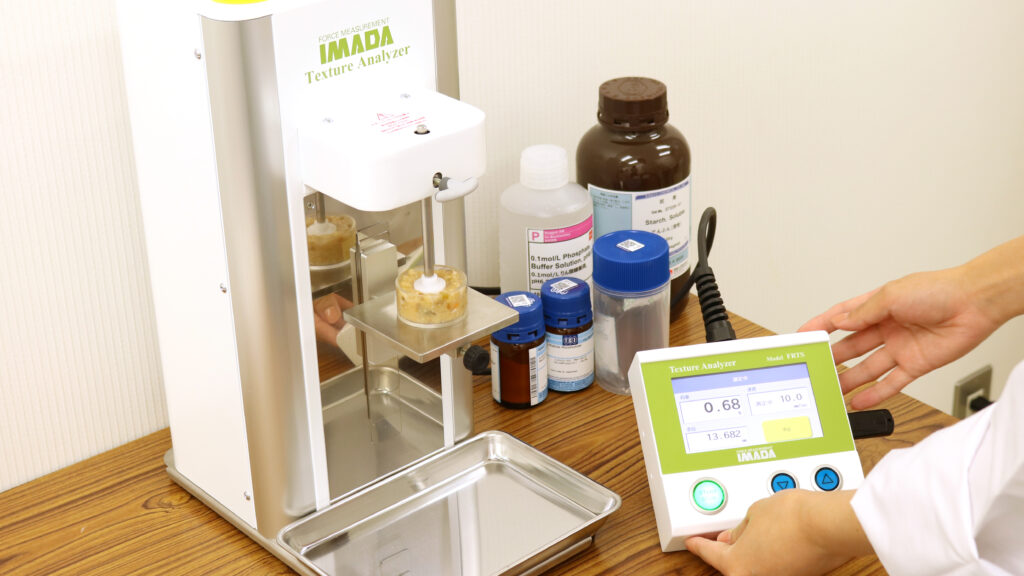
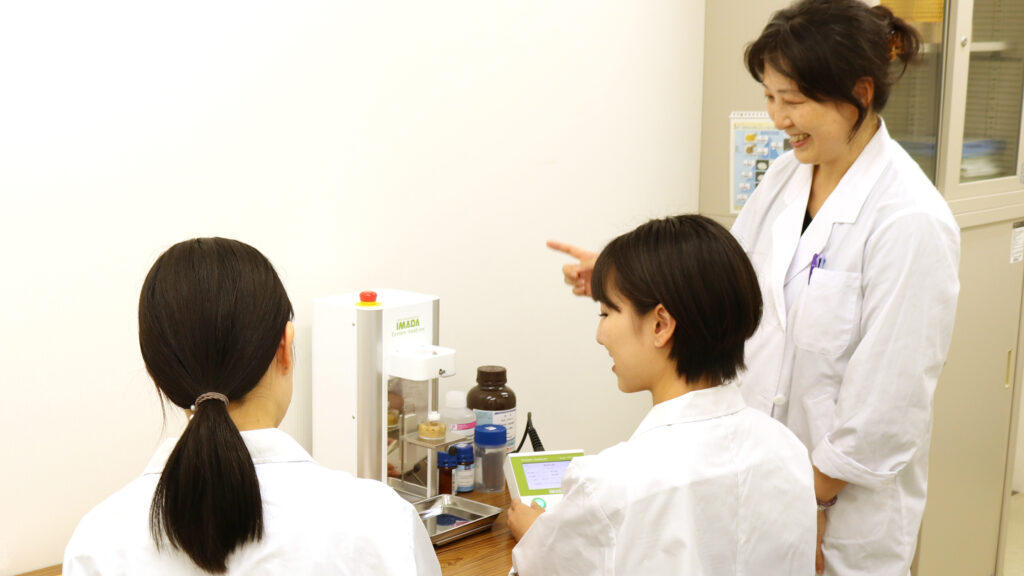
As for the future development of her research, she is considering “data analysis of each parameter” and “comparative analysis of the measurement results of FRTS and LST”. She also said that she would like to utilize FRTS for teaching students.
Aspiration due to decline in swallowing function can lead to problems such as aspiration pneumonia and choking. As Japan and other countries continue to age, the importance of Professor Kondo’s research on dysphagia and aspiration prevention will only increase. IMADA hopes to continue our contribution as supporters of essential social significance.
IMADA Co., Ltd. promotes joint research that solves various issues and aspects of Force measurements. If you are interested, please contact us from below.



